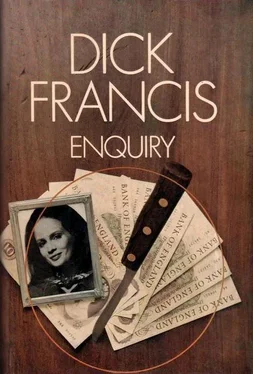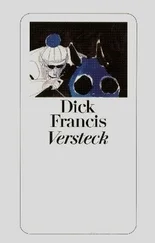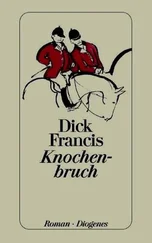‘Saturday?’
‘Do you want me to?’
‘Yes.’
‘I’ll try, then.’
‘Please come.’
‘Oh...’ She suddenly smiled in a way I’d never seen before. ‘All right’
Careless I might be about locking my front door, but in truth I left little about worth stealing. Five hundred pounds would never have been lying around on my chest of drawers for enquiry agents to photograph.
When I’d converted the flat from an old hay loft I’d built in more than mod cons. Behind the cabinet in the kitchen which housed things like fly killer and soap powder, and tucked into a crafty piece of brickwork, lay a maximum security safe. It was operated not by keys or combinations, but by electronics. The manufacturers had handed over the safe itself and also the tiny ultrasonic transmitter which sent out the special series of radio waves which alone would release the lock mechanism, and I’d installed them myself: the safe in the wall and the transmitter in a false bottom to the cabinet. Even if anyone found the transmitter, they had still to find the safe and to know the sequence of frequencies which unlocked it.
A right touch of the Open Sesame. I’d always liked gadgets.
Inside the safe there were, besides money and some racing trophies, several pieces of antique silver, three paintings by Houthuesen, two Chelsea figures, a Meissen cup and saucer, a Louis XIV snuff box, and four uncut diamonds totalling twenty-eight carats. My retirement pension, all wrapped in green baize and appreciating nicely. Retirement for a steeplechase jockey could lurk in the very next fall: and the ripe age of forty, if one lasted that long, was about the limit.
There was also a valueless lump of cast iron, with a semicircular dent in it. To these various treasures I added the envelope which Ferth had given me, because it wouldn’t help if I lost that either.
Bolting my front door meant a hazardous trip down the stairs, and another in the morning to open it. I decided it could stay unlocked as usual. Wedged a chair under the door into my sitting-room instead.
During the evening I telephoned to Newtonnards in his pink washed house in Mill Hill.
‘Hallo,’ he said. ‘You’ve got your licence back then. Talk of the meeting it was at Wincanton today, soon as the Press Association chaps heard about it.’
‘Yes, it’s great news.’
‘What made their Lordships change their minds?’
‘I’ve no idea... Look, I wondered if you’d seen that man again yet, the one who backed Cherry Pie with you.’
‘Funny thing,’ he said, ‘But I saw him today. Just after I’d heard you were back in favour, though, so I didn’t think you’d be interested any more.’
‘Did you by any chance find out who he is?’
‘I did, as a matter of fact. More to satisfy my own curiosity, really. He’s the Honourable Peter Foxcroft. Mean anything to you?’
‘He’s a brother of Lord Middleburg.’
‘Yeah. So I’m told.’
I laughed inwardly. Nothing sinister about Cranfield refusing to name his mysterious pal. Just another bit of ladder climbing. He might be one rung up being in a position to use the Hon. P. Foxcroft as a runner: but he would certainly be five rungs down involving him in a messy Enquiry.
‘There’s one other thing...’ I hesitated. ‘Would you... could you... do me a considerable favour?’
‘Depends what it is.’ He sounded cautious but not truculent. A smooth, experienced character.
‘I can’t offer much in return.’
He chuckled. ‘Warning me not to expect tip offs when you’re on a hot number?’
‘Something like that,’ I admitted.
‘O.K. then. You want something for strictly nothing. Just as well to know where we are. So shoot.’
‘Can you remember who you told about Cranfield backing Cherry Pie?’
‘Before the Enquiry, you mean?’
‘Yes. Those bookmaker colleagues you mentioned.’
‘Well...’ he sounded doubtful.
‘If you can,’ I said, ‘Could you ask them who they told?’
‘Phew.’ He half breathed, half whistled down the receiver. ‘That’s some favour.’
‘I’m sorry. Just forget it.’
‘Hang on, hang on, I didn’t say I wouldn’t do it. It’s a bit of a tall order, though, expecting them to remember.’
‘I know. Very long shot. But I still want to know who told the Stewards about the bet with you.’
‘You’ve got your licence back. Why don’t you let it rest?’
‘Would you?’
He sighed. ‘I don’t know. All right then, I’ll see what I can do. No promises, mind. Oh, and by the way, it can be just as useful to know when one of your mounts is not fit or likely to win. If you take my meaning.’
‘I take it,’ I said smiling. ‘It’s a deal.’
I put down the receiver reflecting that only a minority of bookmakers were villains, and that most of them were more generous than they got credit for. The whole tribe were reviled for the image of the few. Like students.
Oakley didn’t come. No one came. I took the chair from under the door knob to let the world in with the morning. Not much of the world accepted the invitation.
Made some coffee. Tony came while I was standing in the kitchen drinking it and put whisky into a mug of it for himself by way of breakfast. He’d been out with one lot of horses at exercise and was waiting to go out with the other, and spent the interval discussing their prospects as if nothing had ever happened. For him the warning off was past history, forgotten. His creed was that of newspapers; today is important, tomorrow more so, but yesterday is nothing.
He finished the coffee and left, clapping me cheerfully on the shoulder and setting up a protest from an Oakley bruise. I spent most of the rest of the day lying flat on my bed, answering the telephone, staring at the ceiling, letting Nature get on with repairing a few ravages, and thinking.
Another quiet night. I had two names in my mind, juggling them. Two to work on. Better than three hundred. But both could be wrong.
Saturday morning the postman brought the letters right upstairs, as he’d been doing since the era of plaster. I thanked him, sorted through them, dropped a crutch, and had the usual awkward fumble picking it up. When I opened one of the letters I dropped both the crutches again in surprise.
Left the crutches on the floor. Leant against the wall and read.
Dear Kelly Hughes,
I have seen in the papers that you have had your licence restored, so perhaps this information will be too late to be of any use to you. I am sending it anyway because the friend who collected it is considerably out of pocket over it, and would be glad if you could reimburse him. I append also his list of expenses.
As you will see he went to a good deal of trouble over this, though to be fair he also told me that he had enjoyed doing it. I hope it is what you wanted.
Sincerely,
Teddy Dewar.
Great Stag Hotel, Birmingham.
Clipped behind the letter were several other sheets of varying sizes. The top one was a schematic presentation of names which looked at first glance like an inverted family tree. There were clumps of three or four names inside two-inch circles. The circles led via arrows to other circles below and sometimes beside them, but the eye was led downwards continually until all the arrows had converged to three circles, and then to two, and finally to one. And the single name in the bottom circle was David Oakley.
Behind the page was an explanatory note.
‘I knew one contact, the J. L. Jones underlined in the third row of circles. From him I worked in all directions, checking people who knew of David Oakley. Each clump of people heard about him from one of the people in the next clump. Everyone on the page, I guarantee, has heard either directly or indirectly that Oakley is the man to go to if one is in trouble. I posed as a man in trouble, as you suggested, and nearly all that I talked to either mentioned him of their own accord, or agreed when I brought him up as a possibility.
Читать дальше












